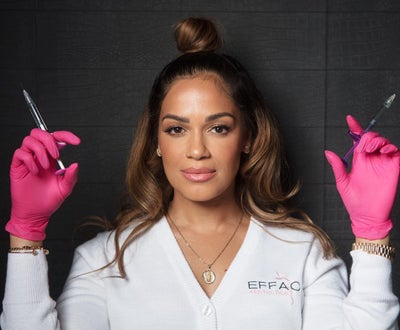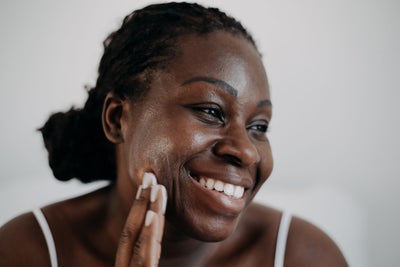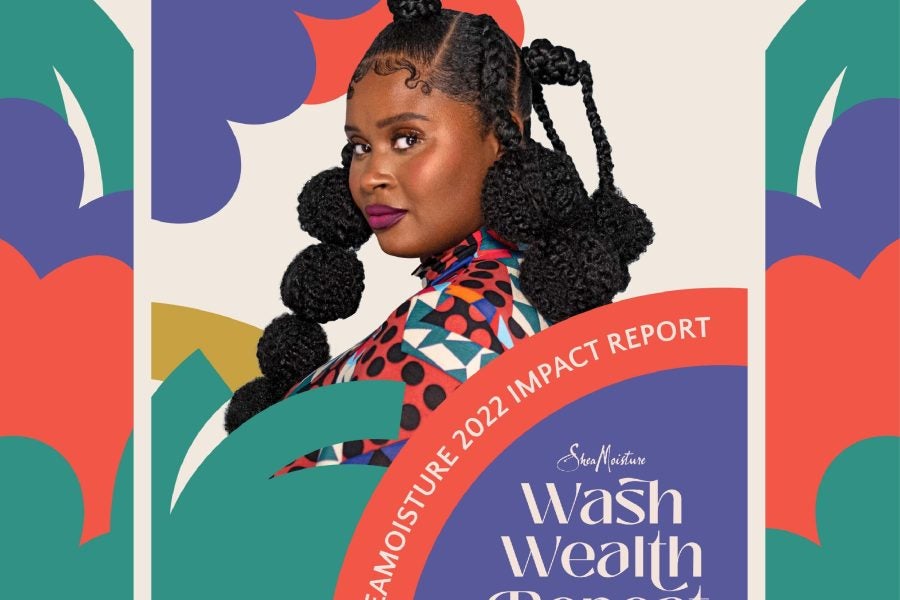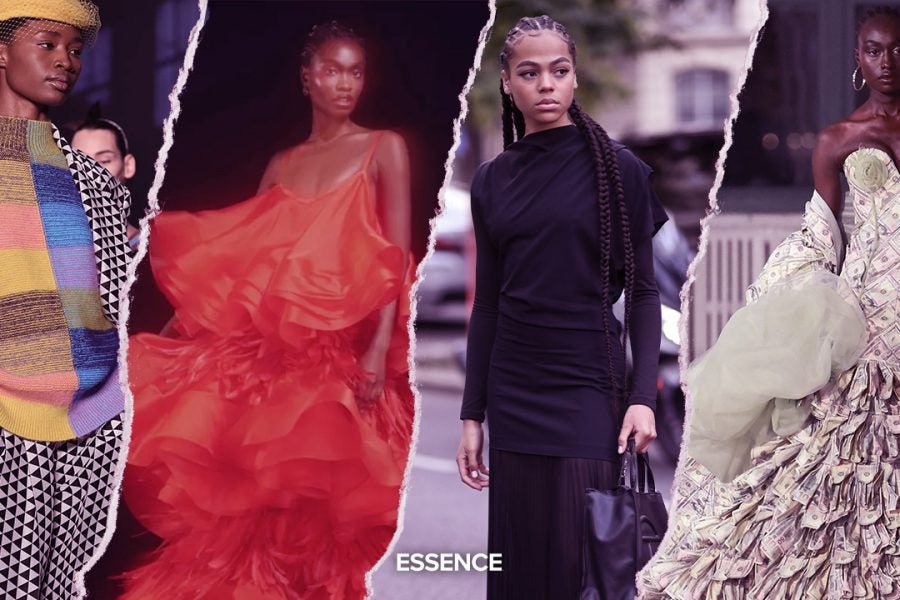
Roberta Moradfar, an advanced aesthetics practitioner to the stars and the owner of the only Black-owned medical spa in Los Angeles (Effacé Aesthetics), holds over a decade’s worth of expertise in cosmetic medicine. Under Effacé Aesthetics, Moradfar practices a special expertise in plastic surgical nursing and sells skin care products that promote hydration, even skin tones, fade bruises, brightens skin complexion, and much more.
Although her specialty lies in enhancing facial features and delivering natural results using botox and fillers, Moradfar’s experience has granted her the intimate opportunity to learn how to care for skin – especially Black skin. Some of her notable clients include the likes of Angela Rye, Tameka Foster, Sir John, Serayah, and many more.
In addition to earning the trust of celebrities and her clients, Moradfar is among the top in her field, and she prioritizes the needs of Black skin. While the myth around Black people not having to use sunscreen is fading, Moradfar connected with ESSENCE to demystify any lingering myths and to elaborate on the do’s and don’ts of sun care for Black skin.

ESSENCE: What is the misconception regarding sun care and melanated skin?
Moradfar: A huge misconception is that melanated skin does not require sunscreen. Those with more melanin believe that if they don’t burn when they’re exposed to the sun or if they tan easily that sunscreen is not a necessity. Although the rate of melanomas and skin cancer occurs less in those with darker skin, the issue is it tends to go undiagnosed early enough for successful treatment. This means by the time a person with darker skin is diagnosed with skin cancer, their survival rate is significantly less than that of a white person.
Do you know where this myth started?
Not exactly sure when this myth started, but the phrase “Black don’t crack” may have a lot to do with the fallacy that those with darker skin do not need the same level of care as other skin types. It’s also because darker skin seems so resilient to things like sun exposure and wrinkles. I also truly believe that it may be the fact that most people of color have been historically left out of research studies and clinical trials, especially when it came to dermatology. There’s a lot to be said regarding the lack of education and knowledge when it comes to darker skin. Sadly, many esthetician programs also fail to provide comprehensive education and training to their students when it comes to treating patients with darker skin. The need for more than just one chapter in dealing with “other” skin types or “ethnic skin” is long overdue.

What are some signs of damage to the skin to watch out for?
Any changes to pre-existing moles as well as new moles or a patch of skin growth should be carefully observed and assessed by a dermatologist with periodic skin checks, especially in the palms and soles of the feet. Bob Marley was known for having skin cancer on his big toe. Any dark lines underneath or around a fingernail or toenail should be examined. Also, a sore that either won’t heal or heals and then returns needs to be addressed.
How should one choose the right sun care products for hyperpigmentation and melasma?
Choosing a mineral/physical broad-spectrum SPF that contains zinc oxide is usually preferred over a chemical sunscreen since skin irritation, and inflammation is more likely with a chemical-based SPF.
What about acne-prone skin?
A mineral-based sunscreen that is non-comedogenic and oil-free. Chemical-based can irritate acne.
Any other tips on selecting sun care products?
If pregnant, it’s best to use a broad spectrum mineral/physical sunscreen. Also, protect lips by applying a lip balm with an SPF of at least 15.
Is there a key ingredient to look out for?
The safest and most effective ingredient in a mineral or physical sunscreen is zinc oxide.

What are your favorite sun care products?
I think EltaMD is the gold standard of SPFs, and I love that they have a range of sunscreens to choose from depending on your skin type and needs.
Anything else to add about preventing sun damage to Black skin?
Please refer to your dermatologist for full body checks and seek the care of a licensed, well-versed aesthetician to provide you with medical-grade skin care treatments and products all year round. Doing treatments such as microdermabrasion and chemical peels can help to exfoliate outer dead skin cells, which may potentially help to reduce the risk of harmful skin cells growing and accumulating over time.







